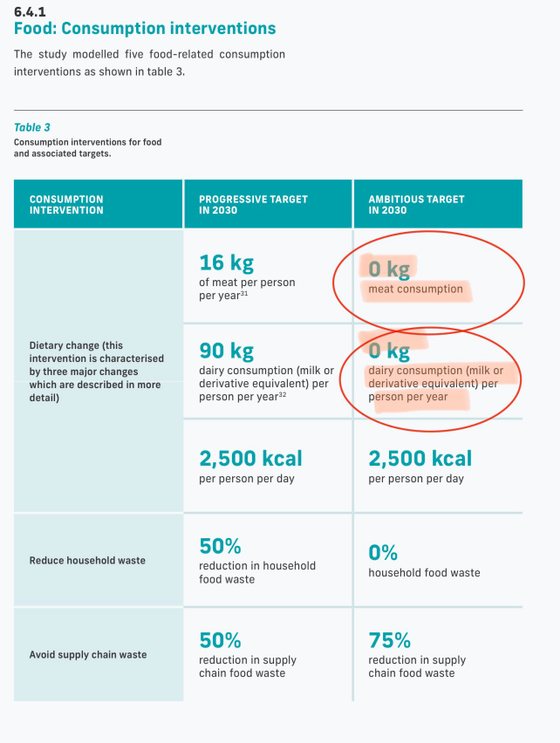It is not the first time that the city of Oxford, in the United Kingdom, has been the subject of news about an alleged tightening of restrictions, to combat the impact of climate change. Now a post being shared on Facebook uses a table, with climate targets to be achieved by 2030, to mention that Oxford has been adopting strong measures to combat climate change, who are met with “violent opposition” from the population. Among the objectives mentioned is the eradication of meat and dairy consumptionan end to the use of all private automobiles and, furthermore, the restriction per person to only three items of clothing a year.
The author of this mail rejects that, with this alert, anticlimactic “conspiracy theories” are being spread, and adds that the Lisbon City Hall it also has similar projects for the capital “to be approved”. The publication is accompanied by a table, written in English, indicating goals to be achieved by 2030 in several areas, divided into two different columns: one “progressive”, the other “ambitious”. In this table, the author highlights, in red, six of the aforementioned goals, all in the column of “ambitious” objectives: they are the consumption of zero kilos of meat and the consumption of zero kilos of dairy products by the end of the decade. . Also claim, in this mailthat these goals are forimplement by 2030 without democratic vote”. But are these accusations true?

A simple Google search for the title of the box displayed — “Food: consumption interventions” — allows us to understand that the images under analysis were taken from the report “The future of urban consumption in a 1.5°C world“, developed by the University of Leeds, the sustainable development company Arup and the C40 cities network project. The “C40” cities correspond to a network that brings together the main cities in the world committed to the fight against climate change and whose main objective is to reduce greenhouse gas (GHG) emissions.
In the report in question, the authors write that the document is intended to assess the “impact of urban consumption on the climate” and further explore “the type of changes needed to ensure that C40 cities reduce GHG emissions, in line with what is internationally agreed. They also point out six priority areas of intervention where leaders, companies and the population can act to change consumption habits and reduce gas emissions: food, clothing and textiles, construction, vehicles, aviation and even electronics.
Taking a closer look at this document”The future of urban consumption in a 1.5°C world”, we find on page 78 of the report the table that is shared in the publication under analysis. There is no reference to the city of Oxford on this page, nor on the others, which, furthermore, It is also not part of the list of C40 cities. Lisbon is part of the list but it is not mentioned either. The document also makes no reference to the measures being implemented “without a democratic vote”, as mentioned in the document. mail.
Still analyzing the report, it should be noted that the measures that the author of the publication says have been in force in Oxford since last year are in the column “stretch” goals and, therefore, do not concern the more “realistic” proposals in this report, they will therefore be more difficult to implement.
As for the reference to the Lisbon City Hall and the “15-minute cities”, the expression was coined by a professor at the University of Paris. He describes a new concept of urbanism that several metropolises are already putting into practice and that has as its genesis the idea that the inhabitants have all accessible within a 15 minute radius, either on foot, by bicycle or by public transport. Paris is the most obvious example of this concept, and several European cities have also committed to adopting the idea.
For now, Lisbon has not passed yet From wishes to practice. The concept of “15-minute cities” will also be the theme of the second edition of the Lisbon Citizens’ Council, scheduled for March 25.
Conclusion
It is not true that the city of Oxford has eradicated the consumption of meat and dairy products and the use of private cars, as well as restrictions on commercial flights and the use of clothing. The data referred to in the publication under analysis correspond to a report with goals yet to be met, not measures already implemented in the city, as the author of this report states. mail. Nor is it true that the Lisbon Chamber has already approved similar measures and that they fall within the concept of “15-minute cities”.
Thus, according to the Observer classification system, this content is:
MISTAKEN
In Facebook’s rating system, this content is:
FAKE: primary content claims are factually inaccurate. This option generally corresponds to “fake” or “mostly fake” ratings on fact check sites.
NOTE: This content was curated by The Observer as part of a fact-checking partnership with Facebook

Source: Observadora
